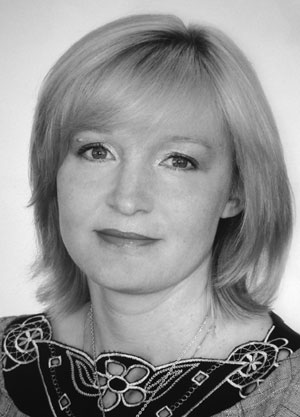Quality of life of schoolchildren with slight mental retardation engaged in adaptive sport
Фотографии:
ˑ:
Quality of life of schoolchildren with slight mental retardation engaged in adaptive sport
E.N. Kalenik, associate professor, Ph.D., Ulyanovsk state university, Ulyanovsk
Key words: quality of life, health, exercise performance, functional status, adaptive sport, schoolchildren with slight mental retardation.
The purpose of the present research was to analyze the correlation of life quality parameters, on the one hand, and indices of exercise performance, functional status - on the other, within regular classes of adaptive sport of mentally retarded schoolchildren.
The set tasks were solved using such research methods as European inquirer of quality of life - Euro Quality of Life, questionnaire. The calculated index with functional changes by A.P. Berseneva, classical test PWC170 with double-stage step-ergometric test.
The research results were processed using mathematical method of descriptive statistics, the hypotheses were checked by Student's t-criterion, Fisher's variance analysis by criterion, Spearman's rank correlation.
Good general exercise performance in schoolaged athletes corresponds to higher estimation of satisfaction with life.
Thus quality of life and adaptive physical culture and sport in mentally-retarded schoolchildren are correlated. On of manifestation of this correlation is dependence of physical and functional variables in the process of classes of adaptive sport: regular physical trainings improve emotional state, increase satisfaction with life, adapt schoolchildren through sport and socialize them in the society.
Bibliography
1. Abramova, I.V. Quality of life of patients of general psychiatric unit / I.V. Abramova// Zhurnal psikhiatrii i meditsinskoy psikhologii. – 2000. – № 1. – P. 42–46. (In Russian)
2. Abrosimova, L.I. Allocation of exercise performance of children and teenagers / L.I. Abrosimova, V.E. Karasik // Medical problems of physical culture, 1978. – Iss. 6. (In Russian)
3. Beloborodov, I.I. Theoretical-methodological problems of the population policy /I.I. Beloborodov// Proceedings of the internat. scient. conf. «Population policy: present and future» – Мoscow, 2005. (In Russian)
4. Vasil'eva, I.A. Quality of life of patients at hemodialysis treatment: biological and psychosocial factors, methods of assessment and approaches to correction: abstract of doctoral thesis (Psych.) / I.A. Vasil'eva. –St.-Petersburg, 2010. – P. 26–45. (In Russian)
5. The study of quality of life of patients with diabetes of the 1st type // Meditsinskaya panorama. – Мoscow, 2003. (In Russian)
6. Landa, B.Kh. Monitoring of physical development and physical preparedness of pupils. Advanced training / B.Kh. Landa/ Ped. university of the First of September, 2010. – P. 7. (In Russian)
7. Mochalova, E.K. Sociomedical characteristics and quality of life of teenaged handicapped persons: abstract of Ph.D. thesis. – Мoscow, 2007. – 21 P. (In Russian)
8. Maruta, N.O. Index of quality of life of patients with affective disorders and its dynamics within treatment / T.V. Pan'ko, I.O. Yavdak, O.E. Semikina, A.V. Stadnik // Ukrainskiy vestnik psikhonevrologii. – 2002. – V. 10. Iss. 2. – P. 113–114. (In Russian)
9. Orlov. V.A. The problems of study of the quality of life in modern medicine / V.A. Orlov, S.R. Gilyarevskiy. – Мoscow: Soyuzmedinform, 1992. – 65 P. (In Russian)
10. Polyvyanaya, M.Yu. Estimation of quality of life of the mentally diseased / M.Yu. Polyvyanaya// Arkhiv psikhiatrii. – 2002. – № 2. – P. 5–9. (In Russian)
11. Sulaberidze, E.V. Problems of rehabilitation and quality of life in modern medicine / E.V. Sulaberidze// Rossiyskiy meditsinskiy zhurnal. – 1996. – № 6. – P. 9–11. (In Russian)
12. Khryschanovich, V.Ya. Estimation of quality of life of patients with primary postoperative hypothyroidism, taking l-thyroxin / V.Ya. Khryschanovich// In: «Estimation of quality of life in palliative medicine» T. Ionova, A. Novik. – Мoscow, 2005. – P. 10. (In Russian)
13. Scales, tests and questionnaires in medical rehabilitation / Ed. by A.N. Belova, O.N. Schepetova.– Мoscow, 2002. – P. 198. (In Russian)
14. Brazier J. Testing the validity of the EuroQol and comparing it with the SF-36 health survey questionnaire / J. Brazier, N. Jones, P. King // Quality of Life Research. – 1993. – Vol. 2. – P. 169–180.
15. Elkinton Y. Medicine and the quality of life. Annals. Int. Med., 1966, N 64. – P 711–714.
16. Grabot D. Assisted evaluation scale of quality of life / D. Grabot, C. Martin, M. Auriacombe, J. Tignol // Encephale. – 1996. – Vol. 22. – N 3. – P. 181–185.
17. Human development indicator (HDI). Reports on human development since 1990 till 2000 // Human development. PROON, 2000. – 464 P. (In Russian)
18. Ruggeri M. Subjective and objective dimensions of quality of life in psychiatric patients: a factor analytical approach / M. Ruggeri, R. Warner, G. Bisoffi, L. Fontesedro // British Journal of Psychiatry. – 2001. – Vol. 178. – P. 268–275.
19. Walker S. Quality of life assessment / S. Walker, R. Rosser. – Kluwer academic publishers, 1993.



 Журнал "THEORY AND PRACTICE
Журнал "THEORY AND PRACTICE